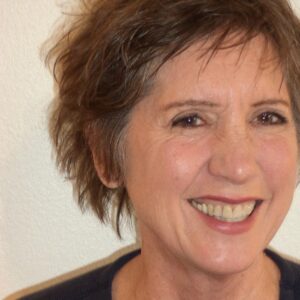Clean Out Your LifeCloset received a 4+ star review, making it an IndieReader Approved title.
Following find an interview with author Corbie Mitleid.
Clean Out Your LifeCloset, published in 2017.
What’s the book’s first line?
“Tell me if you’ve heard this one before: A guy intent on Change walks into a coffee bar, which happens to be attached to a bookstore.”
What’s the book about? Give us the “pitch.”
Clean Out Your LifeCloset is a book that believes you have your own answers – that it’s the core of who you are that lets you unlock who you want to be. And though I can share stories of my own roller-coaster life to see if any of it resonates with you, the book is incomplete without your input. The book covers four subjects: clarity, simplicity, adaptability, and making stress a friend, with Adventure Pages at the end of each chapter. That’s where my book becomes our book – mine and the reader’s – with questions to help them reflect on what they’ve read and opportunities to decide what their personal takeaways are (we call that putting arrows in your quiver). By the time they finish the book, it’s uniquely theirs; even if they lent the book to a friend, the friend would read a different one based on THEIR answers to the Adventure Page questions.
What inspired you to write the book? A particular person? An event?
People have told me for YEARS, “Oh, you’re so funny! You speak so well! You should write a book.” And I would look at them and nod, while I’d think to myself there are a bajillion self-help books out there. What could I possibly write that would be different? Well, as the saying goes, “write what you know.” I’m neither perfect nor special. I have had a life that has been roller coaster/no brakes with more than my share of mistakes, double-backs and General Stupids. But because I’ve learned to look at all of that with compassion for my fallible humanity — not to mention a boatload of humor — I’ve gotten through an awful lot and am still in one piece.
So I started to write about all that. The dysfunctional family…the career crazies…the divorces…the cancer dance. And nowhere did I write about “oh poor me.” Because that’s not the point. The point is that whenever anything like that crossed my path, I’d squint at it and say, “Okay, Problem, you’re here. Gotcha. Now, what can I do with you?” And while I worked on getting to the other side of Said Problem, I’d always look to see what I might learn from the experience that I could pass on to others. That’s what happens when your nature is that of a teacher and counselor. You always look to pass on what you’ve learned.
What’s the main reason someone should really read this book?
LifeCloset is for people frustrated with the usual self-help jargon: they don’t like being dictated to. They do, however, want to walk with a mentor or guide who can explain things to them in both practical and metaphysical terms, understanding that one reader’s answers aren’t going to be like anyone else’s. It’s not for people who want quick answers that don’t require much thought, who expect one book to solve all of their problems, or who want to be spoon-fed Instant Fix-It Solutions.
My readers generally are curious, intent on self-improvement, and who know that change needs to go heart-deep to last. They want to see how to take challenges and setbacks and make them useful. They’re eager to claim their purpose in life but want to discover it for themselves. And they are interested in healing the world in some form, but they don’t know how or where to start.
If they made your book into a movie, who would you like to see play the main character(s)?
Well, if I’m the main character, I’d take Tina Fey in a heartbeat.
When did you first decide to become an author?
Author? When I had a book I thought I could sell. Writer? Ah, now that’s a different thing. I’ve written stories since I was four. Words, as I often say, are my “drug of choice.”
Is this the first book you’ve written?
Book, yes. But I was a writer-for-hire for ten years on the graphic novel series ELFQUEST, where I was responsible for the content of several storylines.
What do you do for work when you’re not writing?
I am an internationally known psychic medium. I have clients all over the world, and read roughly 1000-1200 people a year. But because I am not into the “read for 1000 people in an audience” and I’m not flashy, most people haven’t heard of me unless they have read Robert Schwartz’s series on life between lives, YOUR SOUL’S PLAN and YOUR SOUL’S GIFT, where I am one of his featured channels. I read from home, and often at spiritual expos, but it’s one-on-one, always.
How much time do you generally spend on your writing?
I do 12-14 hour work days six days a week. Begrudgingly, I take time out for chores and food. But because I also have client appointments to deal with and all the marketing and such that goes with being an indie author, I only get to write about four or five hours a day.
What’s the best and the hardest part of being an indie?
The best part is that I don’t have to wait for someone to give me the Imperial Nod that says “yes, you may publish your book.” The hardest part is all the peripheral work that needs to go into the book besides the writing of it – getting a good editor, choosing a cover, finding a good printing house, getting the publicity and marketing and advertising done, and finding places to carry it.
What’s a great piece of advice that you can share with fellow indie authors?
Don’t write to be famous. Don’t write to be respected. Don’t write to “show” anybody who said you couldn’t do it. And don’t write to be rich. Write because you know if you don’t write your book, you will be regretting it mightily on your deathbed.
Would you go traditional if a publisher came calling? If so, why?
I would. In fact, I’m working to catch the attention of a publisher in another field with a project I’m co-writing. Marketing a book these days is an entire career in itself, and I have far more books that I want to write than the time to get them out if I am also doing all the work of a publishing house as well.
Is there something in particular that motivates you?
Honestly? Time, again. And the fact that there are more days behind me than ahead of me. I’m 62, I’ve had a hell of a life, and there are so many lessons I had to go through that I want to pass on before **I** pass on. I know I make people laugh. I know people trust what I tell them has no “ulterior motive.” But I can’t share those things once I’m gone. So for now, it’s write as deeply, as intensely, and as fast as I can.
Which writer, living or dead, do you most admire?
For me, that writer is Geri Larkin. Her road took her from high level executive to beloved Dharma teacher and founder of the Still Point Zen Buddhist Temple in Detroit. Larkin’s writing captured me because of how authentic she is. She writes about her own back-tracking and trip-ups as she sought to find peace and centeredness around her world and life path. Larkin’s writing style resonates with me: taking earnest, deep subjects and bringing them down from the mountain. She is real and honest, sharing her difficulties and joys along her own trek. Her writings bring her home truths and philosophy to an accessible place; they allow me to see a bit of myself in her, and think, Wow! Maybe I can do that, too.



